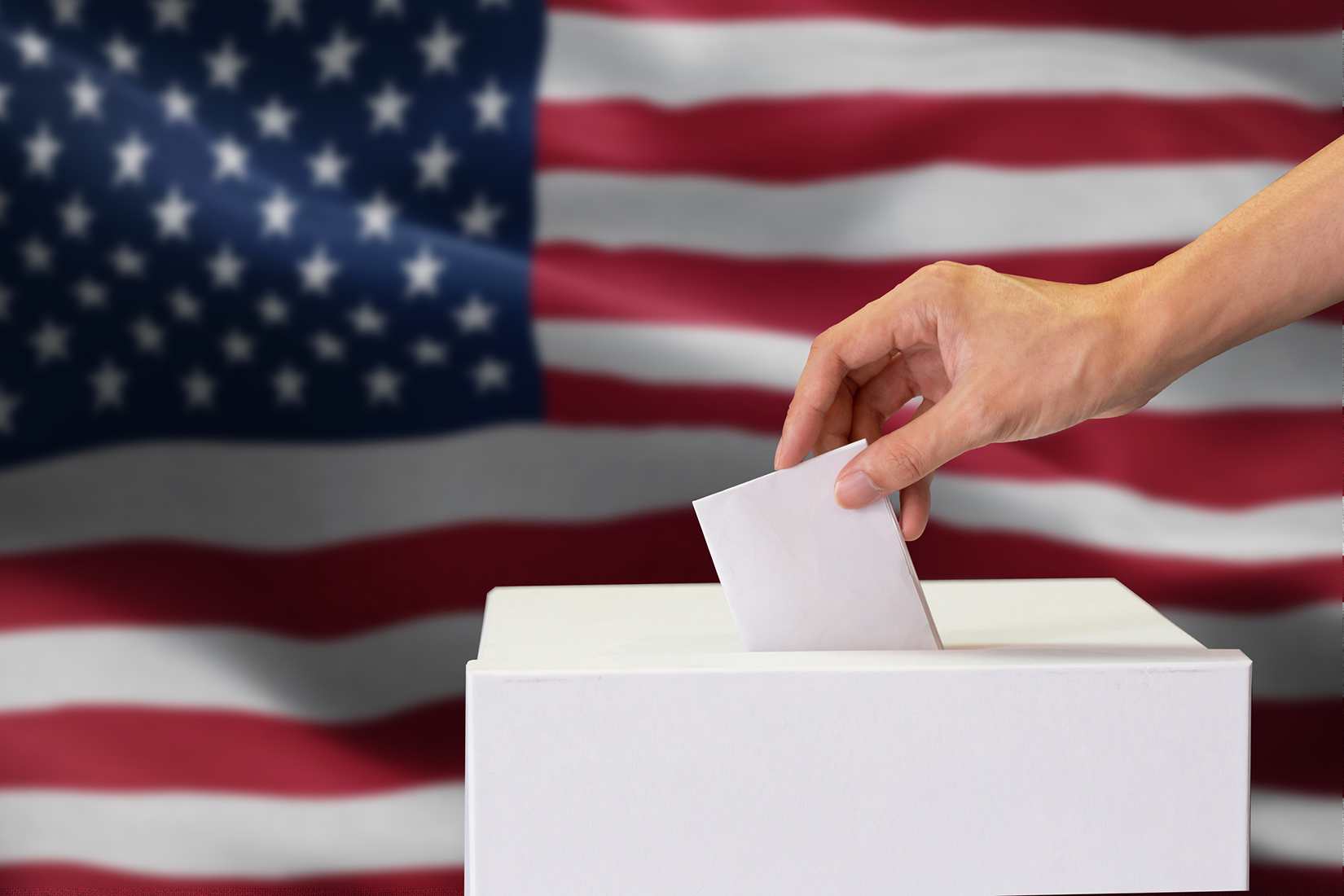US President Joe Biden and former President Donald Trump respectively swept the March 5 Democratic and Republican Party primaries on Super Tuesday, prompting former UN Ambassador Nikki Haley to announce her withdrawal from the Republican race and nearly assuring a Biden-Trump rematch in November. Despite their convincing victories, both Biden and Trump face serious problems and are unpopular among voters, making the presidential contest hard to predict. What is clear, though, is that the outcome of the election will have a significant impact on the course of US foreign policy, with major repercussions for the wars in Ukraine and Palestine and other challenges for the international order. During Japanese Prime Minister Fumio Kishida’s state visit to the United States in April, he and Biden heralded a “new era” of strengthened bilateral cooperation to “uphold and bolster the free and open international order,” but such a commitment could easily unravel depending on the outcome of the November vote.

Why Haley Persisted
Haley did reasonably well in the January 23 New Hampshire primary, gaining 43.2% to Trump’s 54.3%. With his focus on beating Biden in November, Trump had been calling for the party to unify around him and pressured Haley to step down. She vowed to stay on, however, saying at a press conference that she would not withdraw even if Trump beat her in the February 23 South Carolina contest—Haley’s home state. He eventually did so, outgaining Haley 59.8% to 39.5%.[1]
Haley’s first primary victory was on March 3 in Washington, DC, which she won with 62.9% of the vote to Trump’s 33.2%. On Super Tuesday, Haley notched just one triumph in Vermont, losing all remaining states to Trump. She did manage, though, to capture 20% to 30% of the votes cast in states where independents were allowed to take part—such as Virginia and Massachusetts—largely by attracting anti-Trump electors.
Haley supporters in these states were mainly well-educated suburbanites—an important group that could decide the outcome of the presidential election in November. Reuters interviewed 13 people who attended Haley’s campaign events in North Carolina, Virginia, and Washington, DC, and 11 commented that while they were certain that Trump would win the nomination, they were nonetheless unhappy with Trump and supported pre-Trump Republican policies. [2]
Given that Trump could once again fall to Biden in November, Haley’s strategy might have been to remain in the Republican race as long as possible—even if she had no chance of winning—and demonstrate her viability as a presidential candidate, thus positioning herself as the frontrunner for the nomination four years from now.
This can have important implications for US foreign policy. Although she served in the Trump administration as US ambassador to the United Nations, she has been campaigning on the traditional Republican platform of international engagement and realism, in contrast to the unilateralism symbolized by Trump’s “Make America Great Again” slogan.
For example, Haley has come out strongly in favor of both supporting Ukraine and getting tough on China, deriding Trump’s bromance with Russian President Vladimir Putin and his disdain for working closely with US allies. Trump, in turn, has called Haley a “warmonger”[3] and created a stir when, during a February 10 campaign rally in New Hampshire, he encouraged Russia to do “whatever the hell they want” to any NATO member country that does not meet the 2% defense spending guidelines. [4]
The stark contrast in the candidates’ views on foreign and security policy presages not just widely divergent courses for any Republican administration but also whether Washington will continue to engage with the international community or choose the path of isolationism. Its influence may be waning, but the United States still has a dominant military and economic presence, and the choice its voters make will have a major impact on the future of the international order.
In November, anti-Trump Republicans and independent Haley supporters will have the option of either voting for Biden, who champions the Ukrainian cause and stronger ties with allies, or abstaining. The latest US polls show Biden trailing Trump 43% to 48%, [5] but with the election eight months away and Trump facing four criminal prosecutions, the outlook remains uncertain. The results of the Republican primaries up to Super Tuesday suggest that there is a sizable bloc of Republican supporters and independents who are unhappy and concerned about Trump’s policies and legal troubles.
The reasons Haley continued her campaign despite strong pressure to drop out from the Trump camp may not be just because she was looking to boost her chances in 2028; I suspect that she also hoped to make the point that traditional Republican policies of international engagement in step with European and Asian allies and continued US contributions to international stability are in America’s best interests.

US Engagement as an Election Issue
The biggest threat for the Trump campaign as it looks ahead to November is that the presumptive Republican nominee faces four criminal cases. The trial in New York on allegations that Trump mishandled hush money paid to a porn star began on April 15 with jury selection. Trump’s lawyers have requested that the trial be rescheduled to after the election so as not to affect the results. But this in itself exposes Trump’s concern about the impact the case may have on his electability.
Biden’s main weakness, on the other hand—on top of worries about his age—is the rising toll of civilian casualties in Gaza as a result of the administration’s support for Israel. This has caused a slide in his approval ratings in national polls.
In the February 27 primary in Michigan, home to a large Arab-American constituency, voters were urged to protest the administration’s Gaza policy by marking their primary ballots as “uncommitted.” Although Biden easily won the contest with an overwhelming 80% of the vote, 13% indicated that they were “uncommitted.”[6] Even on Super Tuesday, the “uncommitted” segment accounted for 19% in Minnesota and 12.7% in North Carolina, with sizable shares also being seen in Alabama, Colorado, Iowa, Massachusetts, and Tennessee. [7]
Being fully aware of this weakness, the Biden administration, during campaigning for Super Tuesday, sent Vice President Kamala Harris to Israel, where she bluntly criticized the government for limiting humanitarian aid in Gaza and pressuring it to agree to a ceasefire. [8]
Perhaps more worrisome for the international order, though, is that the administration’s hands appear tied by the division in US public opinion over global developments like the war in Ukraine, the fighting in Gaza, and growing US-China tensions over Taiwan.
Trump’s return to the White House would certainly be welcomed by Russian President Putin, who launched the invasion of Ukraine expecting Kyiv to easily capitulate. The war has dragged on, however, thanks to military assistance from the United States and NATO allies. Trump has always been favorable toward Russia, however, and has even claimed that he would end the war in Ukraine in 24 hours.
Given his hardline, ultranationalist policies, Israeli Prime Minister Benjamin Netanyahu, too, would prefer to see the election go to Trump, who is endorsed by pro-Israel, Christian evangelicals, rather than Biden, whose Democratic supporters are increasingly critical of Israeli attacks against civilians in Gaza.
And although Trump has threatened China with economic pain in the form of punitive tariffs, Xi Jinping may not be averse to seeing Trump return to power. With the United States now bogged down in Ukraine and the Middle East, a second Trump administration would disregard the interests of US allies and steer the country toward isolationism, likely shaking up the international order and providing Beijing opportunities to push for “reunification” with Taiwan.
The November presidential election will thus have great repercussions for the future of the international order.

Shaping the Course of International Events
It is difficult at this point to foresee the outcome of the November election. But because the results will have a huge bearing on the future of the international order, the major campaign issues and how the public views them bear close watching. Japan, of course, has a keen interest in global issues like the wars in Gaza and Ukraine that are likely to directly affect the presidential election. Prime Minister Kishida, during his April 11 address to US lawmakers in Congress, said “Ukraine of today may be East Asia of tomorrow” and called for continued US engagement in both Ukraine and the Indo-Pacific. The November presidential election is sure to shape the course of international events and have a major impact on Japan’s security.
(2024/04/18)
Notes
- 1 Martín González Gómez, Albert Sun, and Christine Zhang, “2024 Republican Presidential Delegate Tracker,” New York Times, accessed March 7, 2024.
- 2 Gram Slattery, “Nikki Haley supporters don’t think she has a shot at GOP nomination. And they don’t care,” Reuters, March 4, 2024.
- 3 Nathan Layne, James Oliphant, and Gram Slattery “Trump, Haley spar in New Hampshire over foreign wars,” Reuters, January 24, 2024.
- 4 Kate Sullivan, “Trump says he would encourage Russia to ‘do whatever the hell they want’ to any NATO country that doesn’t pay enough,” CNN, February 11, 2024.
- 5 Shane Goldmacher, “Voters Doubt Biden’s Leadership and Favor Trump, Times/Siena Poll Finds,” New York Times, March 2, 2024.
- 6 Nandita Bose and Tim Reid, “Trump, Biden win Michigan primaries but Democrats mount Gaza protest vote,” Reuters, February 28, 2024.
- 7 Nandita Bose, “‘Uncommitted’ protest vote over Gaza again raises questions for Biden,” Reuters, March 6, 2024.
- 8 “Israel-Gaza war: Kamala Harris urges more aid for starving Gazans,” BBC, March 4, 2024.

